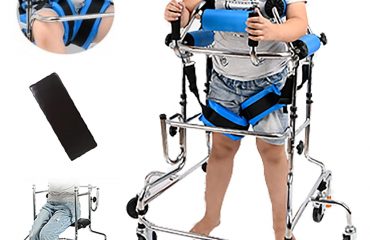Thermal Cycler
The laboratory apparatus thermal cycler is known by various names like the thermocycler, PCR machine or DNA amplifier. Though commonly used to amplify segments of DNA via the polymerase chain reaction, thermal cyclers are also used to facilitate other temperature-sensitive reactions such as restriction enzyme digestion or rapid diagnostics. This technologically advanced device is available in the market in various configurations from the base model which is a one-channel instrument to the most advanced multiplex system that can have up to six channels.
A thermal cycler is a programmable equipment that works by holding materials at different temperatures. As part of the device there is a heating block with depressions or holes to hold sample tubes or vessels containing reaction mixtures. Once it has been programmed for PCR, it operates at specific temperatures for specific amount of time. The programming is done with the help of a console on the thermal cycler or a computer. Some thermal cyclers come equipped with a built-in pre-programmed routine.
Thermal cyclers are able to achieve fast temperature changes and uniform temperature throughout the block. Certain other types of thermal cyclers have multiple blocks with high heat capacity, each of which is kept at a constant temperature, and an automated process moves the reaction tubes between them. There are also miniaturized thermal cyclers where the reaction mixture moves via channel through hot and cold zones on a microfluidic chip.
Thermal cyclers have numerous applications in the field of molecular biology like for carrying out the polymerase chain reaction of DNA for scientific experiments, for helping in maintaining the temperature during biochemical reactions such as DNA cloning for sequencing, DNA amplifying, and DNA-based phylogeny, for the purpose of heating and cooling the DNA samples for genotyping, for carrying out genetic tests that are helpful in clinical diagnosis of certain diseases, for creating thermal gradients in order to find the optimal PCR conditions in experiments like primer annealing.
The basic idea behind the working of a thermal cycler is that it provides a thermally controlled environment for PCR samples. For the PCR reactions to work properly, the heated block must change temperature at specific times, and spend specific durations of time at specific temperatures. The researcher can program the temperature cycling information for this with the help of a console or computer or even use the preprogrammed routine built into the machine.
Thermal cyclers are evolving at a rapid pace. The advancement in the apparatus has led to biologists engaged in field work to accomplish more in less time by analyzing samples on site. The latest models of thermal cyclers come equipped with greater convenience and efficiency. Some thermal cyclers also come with Wi-Fi capability with the possibility of controlling the thermal cycler even from remote locations.
When buying a thermal cycler there are some factors to keep in mind like temperature change, capacity and vessel type, heated lid, flexibility, modularity, and adaptability. Also consider how much advancement you require when buying a thermal cycler and choose a model of machine that has the specifications you need within your price range.
For enquiries and bookings, call 9400630000, Whatsapp – 9447771361 or send an
email to MediTvm@gmail.com




